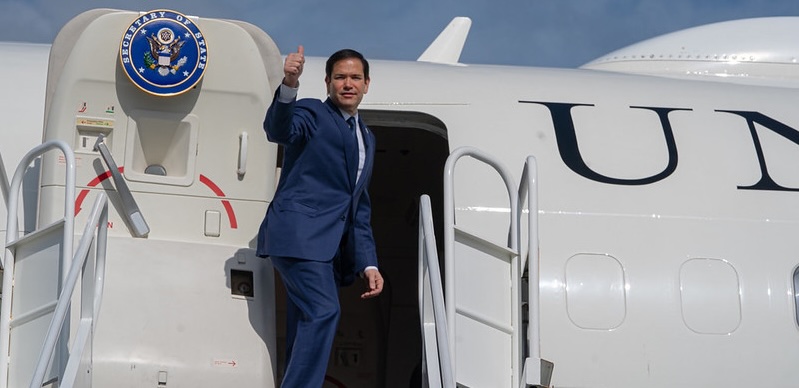Already a subscriber? Make sure to log into your account before viewing this content. You can access your account by hitting the “login” button on the top right corner. Still unable to see the content after signing in? Make sure your card on file is up-to-date.
Secretary of State Marco Rubio has pushed back against Iranian calls for the arrest and execution of International Atomic Energy Agency (IAEA) Director General Rafael Grossi.
Some shit you should know before you read: If you’re unaware, last week, Iranian officials and political figures escalated their rhetoric against International Atomic Energy Agency (IAEA) Director General Rafael Mariano Grossi, with some calling for his arrest and even execution. Ali Larijani, a top advisor to Supreme Leader Ayatollah Ali Khamenei, posted in Arabic on X, “When the war ends, we will settle the score with Grossi,” signaling direct retaliation against the nuclear watchdog chief. Iranian Parliament Vice Speaker Hamid Reza Haji Babaei went further, formally banning Grossi from entering Iran and accusing the IAEA of compromising national security. He claimed that under Grossi’s leadership, the agency “enabled Mossad to access sensitive nuclear facility data,” referring to Israel’s intelligence agency. Iran has not presented public evidence for this accusation, but it has since removed all IAEA surveillance cameras from its nuclear sites, arguing that Grossi’s insistence on inspections was “malign in intent,” according to Foreign Minister Abbas Araghchi.

What’s going on now: In a statement posted on X, Secretary of State Marco Rubio condemned recent Iranian threats against Grossi, calling them “unacceptable and [saying they] should be condemned.” Rubio’s remarks came in response to growing calls within Iran for Grossi’s arrest and execution following the IAEA’s criticism of Iran’s nuclear activity and its inspection policies.
Rubio’s defense of Grossi comes amid rising tension over Iran’s nuclear program, particularly after US and Israeli strikes targeted major nuclear sites, including Fordow, Natanz, and Isfahan. In the wake of those attacks, Iran removed surveillance cameras from its nuclear facilities and banned Grossi from entry. Iran’s ambassador to the United Nations, Amir Saeid Iravani, accused the IAEA of bias and failing to condemn what he called “illegal” attacks by the US and Israel. He stated that Iran’s parliament had legally suspended cooperation with the agency as a direct response to its perceived inaction, calling for the IAEA to “act in a non-discriminatory manner” and refer the military strikes to the UN Security Council.
Despite Iravani’s stance, Secretary Rubio said that the US will support “the IAEA’s critical verification and monitoring efforts in Iran,” Rubio wrote.







